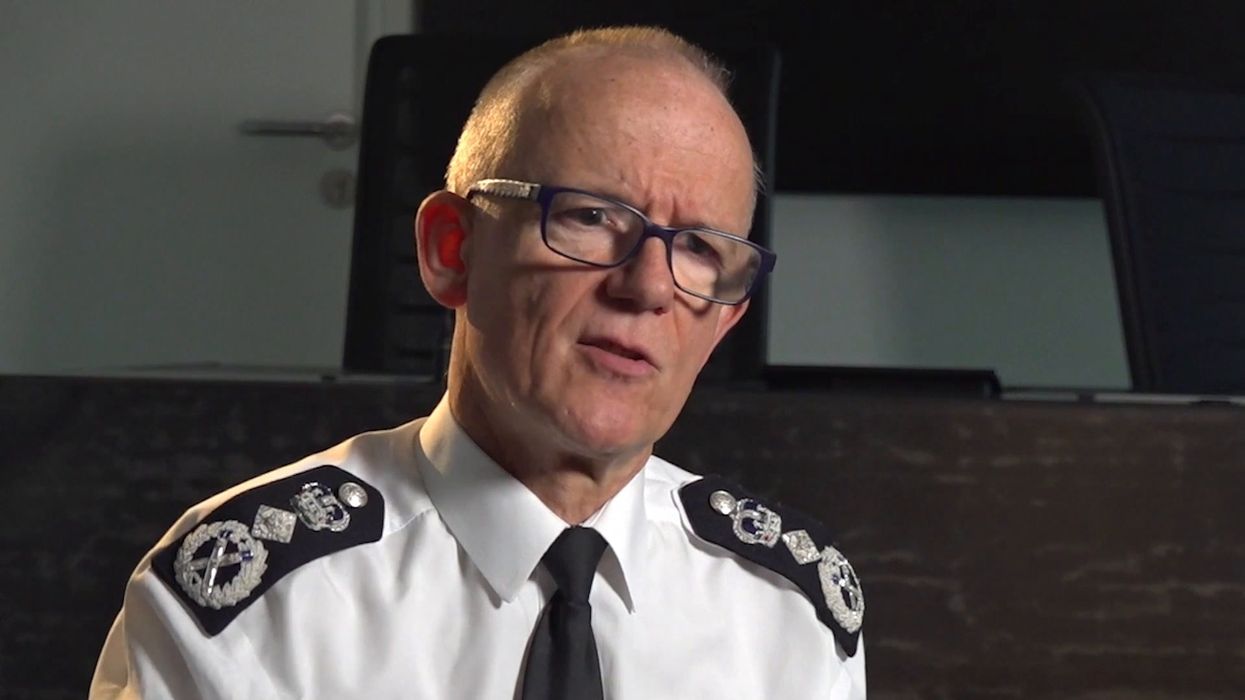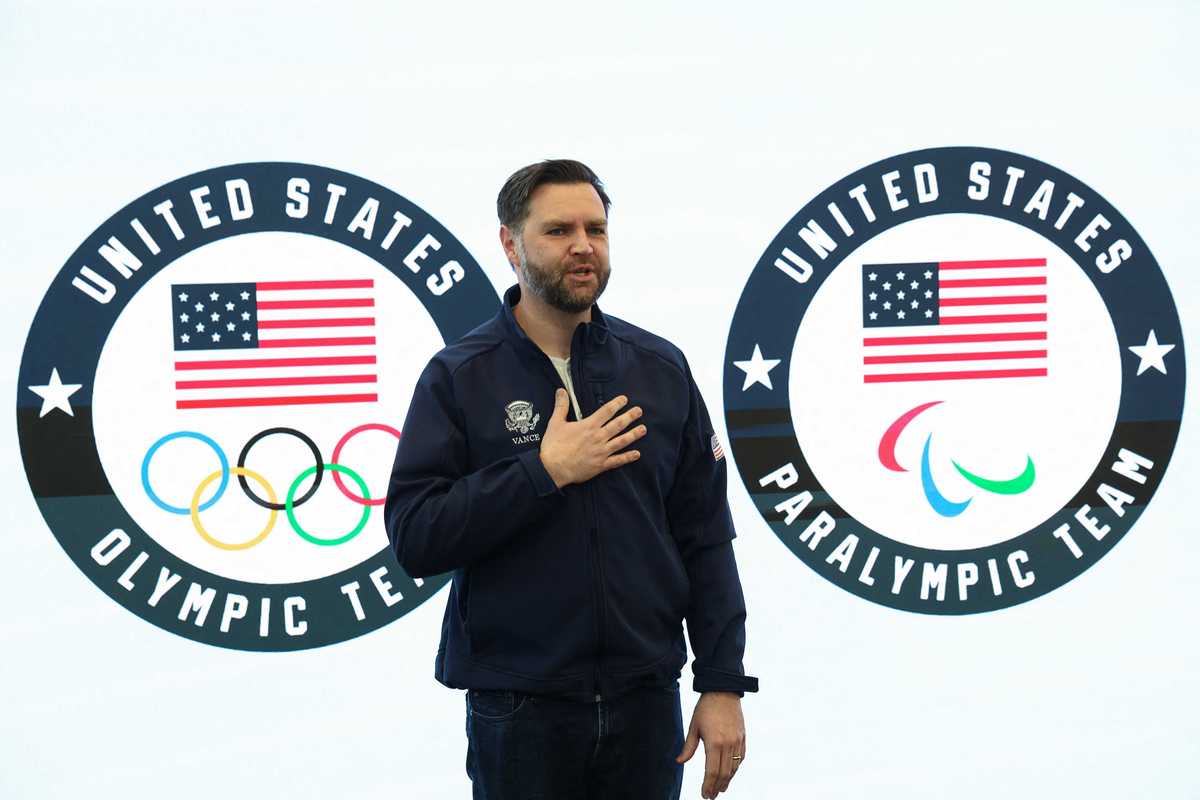Politics
Liam O'Dell
Mar 21, 2023
Casey report: Mark Rowley refuses to describe Met Police as 'institutionally' racist
content.jwplatform.com
A scathing independent report into the behavioural standards and internal culture within the Metropolitan Police has been published today, with House of Lords member Baroness Casey of Blackstock reporting “institutional racism, misogyny and homophobia’ in the force.
The review, which first began in February last year, followed a string of scandals and crimes involving former and serving Met officers – including the murder of Sarah Everard by Wayne Couzens; the jailing of two constables who shared images of murdered sisters Bibaa Henry and Nicole Smallman in a WhatsApp group; and officer David Carrick who admitted 24 counts of rape.
“This report is rigorous, stark and unsparing. Its findings are tough and for many will be difficult to take, but it should leave no one in any doubt about the scale of the challenge,” writes Baroness Casey in her foreword.
In response, Met commissioner Sir Mark Rowley said both him and his colleagues are “under no illusions” about the “deep significance” of the “very sobering report”.
He said: “We recognise that the discrimination in the organisation that’s affected Londoners and colleagues, the absence of sufficient support for frontline officers trying to do their best for London, and the failings in service standards to Londoners, is not acceptable.”
Sir Mark also added the force has already developed a draft “turnaround plan” for reform in the institution.
Sign up to our free Indy100 weekly newsletter
Nevertheless, the report is indeed “unsparing”, with the full review totalling more than 360 pages.
Fortunately, we’ve had a read through of the report and provided below some of the report’s most damning comments.
1. “Inadequate management”
The first conclusion doesn’t hold back, as it finds there are “systemic and fundamental problems” with the running of the Met, as it lacks “clear systems, goals or strategies”, running on “a series of uncoordinated and short-lived initiatives, long on activity but short on action”.
Baroness Casey continues: “The organisation has a ‘we know best’ attitude. It dismisses external views and criticisms, and adopts the attitude that no one outside the Met can understand the special nature and unique demands of their work. This hubris has become a serious weakness.
“The Met does not easily accept criticism nor ‘own’ its failures. It does not embrace or learn from its mistakes.
“Instead, it starts from a position that nothing wrong has occurred. It looks for, and latches onto, small flaws in any criticism, only accepting reluctantly that any wrong-doing has occurred after incontrovertible evidence has been produced.”
She criticised this attitude as “short-sighted” and one which “undermines policing by consent”.
2. Policing “will attract those who wish to abuse the powers conferred by a warrant card”, and the Met “has not taken this fact seriously”
Baroness Casey slammed the force’s vetting processes as “not vigilant” when it comes to “identifying clear warning signs” – such as applicants having past instances of indecent exposure or domestic abuse.
She warns: “In the absence of vigilance towards those who intend to abuse the office of constable, predatory and unacceptable behaviour has been allowed to flourish. There are too many places for people to hide. The integrity of the organisation remains vulnerable to threat.
“All of British policing needs to be alive to this very serious risk. It needs to keep them out when they try to get in, to root them out where they exist, and to guard against the corrosive effects that their actions have on trust, confidence and the fundamental Peelian principles of policing by consent.”
The peer also calls for vetting standards to be changed “with immediate effect”.
3. An ingrained culture of “not speaking up”
On workplace culture, Baroness Casey comments: “Keeping your head down, looking the other way, and telling people – especially senior officers – what they want to hear is the way things are done in the Met.
“The culture of not speaking up has become so ingrained that even when senior officers actively seek candid views, there is a reluctance to speak up. Disciplined services such as policing might be more prone to such behaviours.
“Those who speak up in the Met learn the hard way that there are adverse consequences for themselves, for their careers, and for their teams. Systems support wrongdoers. Complainants are not believed.
“A bullying culture underpins all this. Racist, misogynist, homophobic and other discriminatory acts are tolerated, ignored, or dismissed as ‘banter’.”
4. Blaming “individual ‘bad apples’” instead of “pausing for genuine reflection on systemic issues”
Baroness Casey goes on to find the Met “talks up future actions as if they were already implemented”, adding: “This tendency is most clearly noticeable in a tick box approach to critical reports, inspections, inquiries and other forms of scrutiny where bigger picture issues are broken down into individual actions.
“Problems with culture and attitudes cannot be addressed by developing a new policy, changing the rules or developing a new process.”
She also writes: “The Met preferred to pretend that their own perpetrators of unconscionable crimes were just ‘bad apples’, or not police officers at all. So throughout this review, I have asked myself time and again, if these crimes cannot prompt that self-reflection and reform, then what will it take?”
Ouch.
5. A “profound culture” across the Metropolitan Police which “incentivises people to look, act and sound the same” and has a “resistance to difference”
In particular, this takes the form of “widespread bullying”, with almost a quarter (22 per cent) of staff and officers reporting being bullied.
It’s particularly bad for those from marginalised communities or “protected characteristics”. A third (33 per cent) of employees with a long-standing illness or disability have experienced bullying, and despite disability discrimination claims being the most frequent type of claim brought against the Met, “there is no willingness to learn from these cases”.
“While it may or may not be a small minority of colleagues who are committing acts of discrimination, many more are affected by those acts. The organisation as a whole, especially through its leadership, its management tiers, its policies, systems and practices, allows, or causes, discrimination and abuse to occur and recur,” writes Baroness Casey.
One sickening paragraph on “pranks” and “banter” reads: “We heard of bags of urine being thrown at cars, male officers flicking each other’s genitals, dildos being put in coffee mugs, lockers being emptied or covered in evidence tape, and an animal put in an officer’s locker.”
Another, on the “humiliation” of junior employees through “initiation tests”, talks of food challenges, individuals being “urinated on in the shower”, and one report of a person being “allegedly sexually assaulted in a shower”.
6. “Systemic and institutional bias” in the misconduct system
On this point, Baroness Casey said the force’s misconduct process “is not fit for purpose” and called for a “new, independent, multi-disciplinary team of officers and staff” to be brought in to reform its handling sexual misconduct, domestic abuse and discrimination.
7. “Deep-seated homophobia”
Statistics cited in the review include almost one in five lesbian, gay and bisexual members of staff have personally experienced homophobia, while 30 per cent said they have been bullied.
“We heard repeatedly that officers in the Met feel emboldened to ask personal questions about the sex lives of gay and bisexual women that they wouldn’t ask of heterosexual officers and staff.
“Gay women would be asked questions such as ‘who’s the man in the bedroom?’ or ‘what percentage gay are you?’. They were asked whether they are ‘up for a threesome’, and asked whether they were ‘chatting up’ members of the public when speaking to them as part of their job.
“One officer had a picture of her partner put up as a ‘poster girl’ in a local office by male colleagues because she was attractive,” it reads.
8. “A collective and continued failure by the Met” to “understand, accept and address the existence of racism”
Baroness Casey said the review found “complacency in the Met to tackle problems, a lack of curiosity about what people of colour are telling them; and a wilful blindness to seeing the evidence all around them, within and outside the Met”.
One officer reported having his beard cut by another individual, and another said his turban was put into a shoe box – both because the respective perpetrators “thought it was funny”.
A third officer, who is Muslim, testified: “I found bacon left in my boots inside my locked locker. I was horrified but kept an open mind as to who this could be.
“I was hoping to identify who the culprit was and take appropriate action. I didn’t want to be branded a person who played the race card and out of fear of reprisals did not tell anyone at the time.”
Baroness Casey also refers to an “under-protection” and “over-policing” of Black communities throughout the report.
The reaction
Prime minister Rishi Sunak said trust in the Met has been “hugely damaged” and called for a “change in culture and leadership” in policing, but failed to say whether he believed his daughters could trust the police in London.
“Of course we need the answer to that question to be yes.
“Clearly at the moment trust in the police has been hugely damaged by the things that we’ve discovered over the past year.”
Sadiq Khan, the mayor of London, described the publication of the report as "one of the darkest days" in the history of the Met Police.
Meanwhile the Women’s Equality Party, which previously left a barrel of rotten apples outside the Met’s HQ and displayed fake police appeals across the capital, today placed posters around the transport network placing its own spin on the oft-heard British Transport Police slogan.
“See it. Say it. Ignore it,” the posters read, with the political party calling for a statutory inquiry into misogyny in the police.
Have your say in our news democracy. Click the upvote icon at the top of the page to help raise this article through the indy100 rankings.
Top 100
The Conversation (0)














